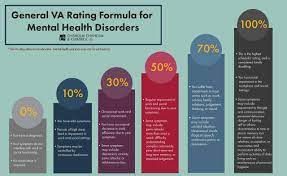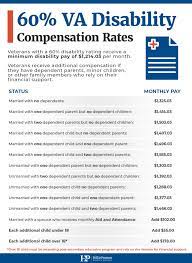Title: Simplifying the VA Claims Process for Veterans
Introduction:
Navigating the VA claims process can be a daunting task for veterans seeking benefits and support. However, thanks to recent improvements and advancements, filing a VA claim has become easier and more streamlined than ever before. In this article, we will explore some key strategies and resources that can help veterans simplify the VA claims process.
Online Application System:
One of the most significant advancements in recent years is the introduction of an online application system by the Department of Veterans Affairs. This user-friendly platform allows veterans to submit their claims electronically, eliminating the need for paperwork and long waiting times. The online system guides applicants through each step, ensuring that all necessary information is included.
Disability Benefits Questionnaires (DBQs):
To further simplify the claims process, Disability Benefits Questionnaires (DBQs) have been introduced. These standardized forms outline specific medical conditions and provide detailed information that doctors can use to evaluate a veteran’s disability claim. By completing a DBQ with their healthcare provider, veterans can provide essential evidence to support their case.
Fully Developed Claims (FDCs):
Fully Developed Claims (FDCs) are another option available to veterans seeking benefits. By submitting all relevant medical records and supporting documents upfront, veterans can expedite their claims process significantly. FDCs are designed to be processed faster than traditional claims since they require less time for gathering additional evidence.
Veteran Service Organizations (VSOs):
Veteran Service Organizations (VSOs) play a crucial role in assisting veterans with their claims. These organizations have trained personnel who can guide veterans through the entire process, ensuring that all necessary documentation is provided and deadlines are met. VSOs also have experience working with the VA system and can help navigate any potential hurdles along the way.
Claim Appeals Modernization:
Recognizing that claim denials or disagreements may occur, the VA has implemented the Appeals Modernization Act. This act provides veterans with multiple options for appealing a decision, including a faster and more simplified process called the Supplemental Claim Lane. This new approach allows veterans to submit additional evidence to support their claim without going through lengthy traditional appeals.
Conclusion:
While the VA claims process may have once been complex and time-consuming, recent improvements have made it easier for veterans to access the benefits they deserve. From online applications and DBQs to fully developed claims and veteran service organizations, there are now numerous resources available to simplify the process. By taking advantage of these tools and support systems, veterans can navigate the VA claims process with greater ease and efficiency, ensuring they receive the benefits they are entitled to for their service and sacrifices.
Frequently Asked Questions: Easy VA Claims Guide
- How do I file a VA claim?
- What documents are needed to submit a VA claim?
- How long does it take for the VA to process a claim?
- What benefits am I eligible for under a VA claim?
- How do I appeal a denied VA claim?
- Is there help available if I need assistance with my VA claim?
How do I file a VA claim?
Filing a VA claim can be done through the following steps:
- Gather necessary documents: Before starting the claim process, make sure you have all relevant documents on hand. This includes your military service records, medical records, and any other supporting documentation related to your claim.
- Determine eligibility: Ensure that you meet the eligibility criteria for the specific benefit or compensation you are seeking. The VA website provides detailed information on the different types of benefits available and their eligibility requirements.
- Choose a claim method: Decide whether you want to file your claim online using the VA’s eBenefits portal or by submitting a paper application through mail. Filing online is generally faster and more convenient, as it allows for real-time tracking of your claim status.
- Complete the application: Provide accurate and detailed information when completing your application. Be thorough in describing your condition or disability and how it relates to your military service. Attach any supporting documents that strengthen your case.
- Submit your claim: If filing online, follow the instructions provided on the eBenefits portal to submit your application electronically. If filing by mail, make copies of all documents before sending them to the appropriate VA regional office based on your location.
- Monitor claim status: Once submitted, you can track the progress of your claim through eBenefits or by contacting the VA’s toll-free number for updates. It’s essential to keep an eye on any requests for additional documentation or examinations that may be required.
- Attend medical examinations (if necessary): Depending on the nature of your claim, you may be scheduled for a medical examination to assess your condition further. Attend these appointments as scheduled to ensure a thorough evaluation of your case.
- Await decision notification: After reviewing all submitted evidence and conducting any required examinations, the VA will make a decision regarding your claim. They will notify you in writing about their decision and provide details on any benefits awarded or reasons for denial.
- Appeal if necessary: If your claim is denied or you disagree with the decision, you have the right to appeal. The VA will provide instructions on how to initiate an appeal and the specific timeframe within which you must do so.
Remember, each claim is unique, and the process may vary depending on individual circumstances. It’s recommended to consult with a Veterans Service Officer (VSO) or a representative from a Veteran Service Organization (VSO) for personalized guidance and assistance throughout the claims process.
What documents are needed to submit a VA claim?
When submitting a VA claim, it is important to gather and provide the necessary documents to support your case. While specific requirements may vary depending on the type of claim you are filing, here are some common documents often needed:
- DD-214 or Discharge Papers: This document shows proof of your military service and is essential for establishing eligibility for VA benefits.
- Service Treatment Records: These records document any medical treatment received during your military service. They can include hospitalization records, outpatient records, and dental records.
- Medical Records: Any relevant medical records from non-military healthcare providers should be included to support your claim. This can include doctor’s notes, test results, and treatment summaries.
- Nexus Letters: A nexus letter from a healthcare provider can establish a connection between your current condition and your military service. It should explain how your service contributed to or aggravated the claimed condition.
- Dependency Documents: If you are claiming benefits for dependents such as a spouse or children, you will need to provide marriage certificates, birth certificates, or adoption papers as proof of dependency.
- Social Security Disability Award Letter: If you have been approved for Social Security Disability benefits, providing this letter can help support your VA claim by showing that another government agency has recognized your disability.
- Financial Information: For certain claims related to pension or compensation based on income limitations, you may need to provide financial information such as tax returns or bank statements.
- Private Insurance Information: If you have private health insurance coverage, providing information about it can help ensure coordination of benefits with the VA.
It is important to note that these are general documents often required for VA claims; however, the specific documentation needed may vary depending on the nature of your claim and individual circumstances. Consulting with a veteran service organization (VSO) or an accredited representative can provide further guidance on the specific documents required for your claim.
How long does it take for the VA to process a claim?
The processing time for a VA claim can vary depending on several factors, including the complexity of the claim, the availability of supporting documentation, and the current workload of the VA. Generally, the VA aims to process claims within 125 days or approximately four months. However, it is important to note that this is an average estimate and individual cases may take longer or shorter periods of time.
To streamline the claims process and potentially expedite your claim, there are certain steps you can take:
- Submit a complete application: Ensure that you provide all necessary information and supporting documents when submitting your claim. This helps avoid delays caused by requests for additional information.
- Use online resources: Utilize the VA’s online application system and submit any required forms electronically. This can help reduce processing times compared to traditional paper submissions.
- Seek assistance from a VSO: Veteran Service Organizations (VSOs) have experienced personnel who can guide you through the claims process and help ensure that your application is complete and accurate.
- Consider fully developed claims (FDCs): Filing an FDC with all relevant medical records and supporting documents upfront can potentially expedite your claim since it requires less time for gathering additional evidence.
- Stay informed: Regularly check the status of your claim through the VA’s online portal or by contacting their helpline for updates on its progress.
While efforts have been made to improve efficiency, it is important to remember that each case is unique, and some claims may require additional time for review due to specific circumstances or complexities involved. Patience and understanding are essential throughout this process, but rest assured that the VA strives to provide timely decisions on all claims submitted by veterans.
What benefits am I eligible for under a VA claim?
As a veteran, you may be eligible for a range of benefits under a VA claim. The specific benefits you qualify for depend on various factors such as your service history, disability status, and other individual circumstances. Here are some common benefits that veterans may be eligible for:
- Disability Compensation: If you have a service-connected disability or injuries resulting from your military service, you may be eligible for disability compensation. This benefit provides monthly tax-free payments based on the severity of your condition.
- Healthcare Benefits: The VA offers comprehensive healthcare services to eligible veterans, including preventive care, hospitalization, mental health services, and specialized treatments. Enrollment in the VA healthcare system is required to access these benefits.
- Education and Training Assistance: The GI Bill provides educational assistance to veterans, including tuition coverage for college or vocational training programs. This benefit can help you pursue higher education or acquire new skills to enhance your career prospects.
- Home Loan Guarantees: The VA offers home loan guarantees that can make it easier for veterans to purchase or refinance homes with favorable terms and conditions.
- Vocational Rehabilitation and Employment Services (VR&E): If you have service-connected disabilities that affect your ability to work, VR&E provides counseling, training, job placement assistance, and support to help you find suitable employment.
- Dependents’ Educational Assistance (DEA): This program offers educational assistance to the dependents of certain disabled or deceased veterans who meet specific eligibility criteria.
- Pension Benefits: Veterans who have limited income and meet certain criteria may be eligible for pension benefits provided by the VA.
- Burial Benefits: The VA provides burial benefits to honorably discharged veterans, including burial at a national cemetery, headstones or markers, burial flags, and financial assistance for funeral expenses.
It’s important to note that eligibility requirements can vary depending on factors such as length of service, discharge status, disability ratings, income, and more. To determine your specific eligibility for these benefits, it is recommended to contact the Department of Veterans Affairs or consult with a veteran service officer who can guide you through the claims process and help assess your eligibility for various benefits.
How do I appeal a denied VA claim?
If your VA claim has been denied, you have the right to appeal the decision. Here are the steps to follow when appealing a denied VA claim:
Understand the Decision: Carefully review the denial letter from the Department of Veterans Affairs (VA) to understand why your claim was denied. The letter should outline the specific reasons for denial and provide information on how to proceed with an appeal.
Determine Your Appeal Option: The Appeals Modernization Act provides veterans with three options for appealing a denied claim:
a. Supplemental Claim: If you have new evidence to support your claim, you can submit a Supplemental Claim. This option allows you to provide additional evidence or address any errors made in the initial decision.
b. Higher-Level Review: If you believe there was an error in how your claim was initially evaluated, you can request a Higher-Level Review by a more experienced reviewer who will reassess your case using only the evidence previously submitted.
c. Notice of Disagreement (Appeal to Board of Veterans’ Appeals): If you disagree with the decision and want a formal review by the Board of Veterans’ Appeals, you can file a Notice of Disagreement (NOD). This option may involve further steps and potentially a hearing before an administrative law judge.
Gather Supporting Evidence: Regardless of which appeal option you choose, it’s crucial to gather all relevant supporting evidence for your case. This includes medical records, service records, statements from witnesses or experts, and any other documentation that strengthens your claim.
Consult with an Expert: Consider seeking assistance from a qualified Veterans Service Organization (VSO) or an attorney who specializes in VA claims. They can provide guidance throughout the appeals process and help ensure that all necessary documentation is included in your appeal.
Submit Your Appeal: Follow the instructions provided in your denial letter on how to submit your appeal request. Make sure to include all the required forms, supporting evidence, and any additional information requested.
Stay Engaged and Patient: The appeals process may take time, so it’s important to stay engaged and patient. Keep track of important deadlines and respond promptly to any requests for additional information or examinations.
Remember, the appeals process is designed to provide veterans with an opportunity to present their case again and potentially overturn a denial. By following these steps and seeking assistance when needed, you can effectively navigate the VA appeals process and work towards a favorable outcome for your claim.
Is there help available if I need assistance with my VA claim?
Absolutely! If you need assistance with your VA claim, there are several resources available to help you navigate the process and ensure that you receive the support you deserve. Here are some avenues you can explore:
- Veteran Service Organizations (VSOs): VSOs, such as the American Legion, Disabled American Veterans (DAV), and Veterans of Foreign Wars (VFW), have trained personnel who can provide guidance and support throughout the claims process. They can help you understand the requirements, gather necessary documents, and submit your claim. VSOs often have experience working with the VA system and can advocate on your behalf.
- County Veteran Service Offices: Many counties have dedicated Veteran Service Offices that offer free assistance to veterans in filing their claims. These offices have knowledgeable staff who can provide guidance, answer questions, and help you complete the necessary paperwork.
- State Veterans Affairs Offices: State-level Veterans Affairs Offices also provide resources and assistance to veterans seeking benefits. They can offer guidance specific to your state’s programs and services, helping you navigate through the claim process more effectively.
- Accredited Claims Agents or Attorneys: Accredited claims agents or attorneys specialize in assisting veterans with their VA claims. These professionals have undergone training and are authorized by the VA to provide legal representation during the claims process. They can guide you through complex cases or appeals if needed.
- VA Regional Offices: The VA has regional offices throughout the country where veterans can seek assistance directly from VA representatives. These offices can help with filing claims, answering questions, and providing general information about benefits and services available.
Remember, it’s essential to reach out for assistance if you need it. The organizations mentioned above are dedicated to supporting veterans like yourself in navigating the VA claims process successfully.




